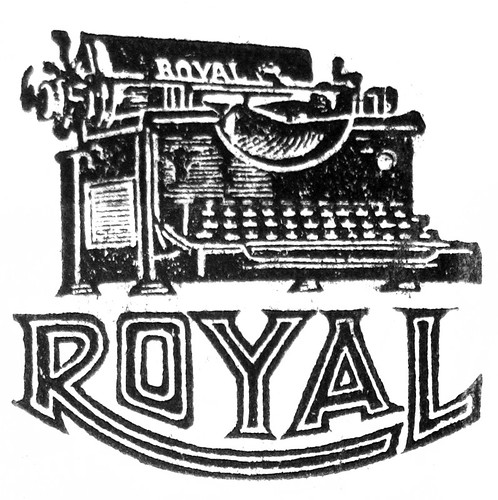- TypewriterGuy
- Typewriter Talk Vet
 Offline
Offline 
- From: United States
- Registered: 24-4-2015
- Posts: 1,250
Re: Smith Premier #4 Restoration Progress
Annnnnnnndddd here it is! Its a lot cleaner then it looks.... Ignore the background.
Back from a long break.
Starting fresh with my favorite typer. A Royal Futura!
- Markmotown
- Touch Typist
 Offline
Offline - From: Villanova, PA
- Registered: 16-12-2015
- Posts: 183
Re: Smith Premier #4 Restoration Progress
This is gorgeous, immensely helpful (as I just got a Smith Premier No. 4 with case), and also absolutely terrifying! ![]()
- TypewriterKing
- Inactive Account
 Offline
Offline - From: DeepInTheHeartO', Texas
- Registered: 17-2-2016
- Posts: 1,011
Re: Smith Premier #4 Restoration Progress
This is what keyboards looked like before 1878, when Remington introduced a model with double-character type bars and shift keys. I can't tell, but is this one a visible writer, or do you have to lift the platen assembly to see what you've typed? Looks like the latter, judging from the picture.
Underwood--Speeds the World's Bidness
- ztyper
- Key Master
 Offline
Offline 
- From: Somewhere in New Jersey
- Registered: 01-10-2014
- Posts: 773
Re: Smith Premier #4 Restoration Progress
It's a blind writer, for the platen slides up when the operator wants to see the paper. It's mot my favorite system, but I suppose it works.
A high schooler with a lot of typewriters. That's pretty much about it.
- TypewriterKing
- Inactive Account
 Offline
Offline - From: DeepInTheHeartO', Texas
- Registered: 17-2-2016
- Posts: 1,011
Re: Smith Premier #4 Restoration Progress
Well, it wouldn't do too well even in a 1920s secretarial pool where typists need to see their copy as it's being made. That was why Underwood was so popular--they were the first commercially successful manufacturers of a visible writer. That and their dogged durability made them a legend.
Underwood--Speeds the World's Bidness
- Markmotown
- Touch Typist
 Offline
Offline - From: Villanova, PA
- Registered: 16-12-2015
- Posts: 183
Re: Smith Premier #4 Restoration Progress
Finally getting to work on my Smith Premier. Started with a thorough cleaning inside and out. But I think the most of the heavy work is going to be on the basket of keys. Do you guys have any suggestions for getting the platen, carriage, and "crown" off the thing so I can get into the basket? I can't seem to even get the carriage off the guiderails. Any suggestions would be greatly appreciated.
- TyperwriterGuy
- Novice Typer
 Offline
Offline - Registered: 05-4-2015
- Posts: 25
Re: Smith Premier #4 Restoration Progress
If your still wondering, you have to take off the front rail thing with the arrow in front of the carriage. There are two ball bearings, or one, and I cannot remember. Don't lose them. Slide it out while tilting the carriage upwards. Now you can work the carriage off to the right I think it is. Be careful! It may grind a bit on the escarpment, if so tilt it until it doesnt.
- TyperwriterGuy
- Novice Typer
 Offline
Offline - Registered: 05-4-2015
- Posts: 25
Re: Smith Premier #4 Restoration Progress
Actually, don't do that first. Take off the whole back escapement frame part by unscrewing the two or three big screws (you'll see them) and slide the whole thing out. Be careful of some tiny ball bearings on the bottom part of the frame from the escapement rod. Now do the rest I said. The carriage should come right off. Oh and when taking off the back there's more carriage ball bearings, make sure you know where they go before hand and don't lose them.
- Markmotown
- Touch Typist
 Offline
Offline - From: Villanova, PA
- Registered: 16-12-2015
- Posts: 183
Re: Smith Premier #4 Restoration Progress
Things are progressing relatively well. I popped the top off, and have been trying to clean out the rusted keys and hammer mechanisms with a heavy dose of PB Blaster, wire brushes, and a whole lot of patience. Already things are moving in a way I'm sure they haven't in at least 80 years, since I found this rusted heap in a barn in central Pennsylvania. I've pulled out the remnants of the old, extra-wide ribbon, and I'm thinking that I'll cut out the rotten sections and try to re-ink the rest of it, rather than try to fashion a brand new ribbon. This is SO much more work than any other restoration project I've ever done, and I'm hoping it'll be worth it in the end. I've got the typewriter, the original metal cover, and a few months ago, I picked-up a rusted cast-iron skeleton of an old Smith Premier typewriter stand. If I can get all of this together, and operational, it'll be simply gorgeous!!!
- colrehogan
- Key Master
 Offline
Offline 
- From: Granite City, IL
- Registered: 05-2-2015
- Posts: 612
Re: Smith Premier #4 Restoration Progress
I just brought one of these home today. What does it look like with the ribbon properly fed through it? Finally found my serial number too, thanks to your initial picture.
Smith Premier typewriters are cool!


